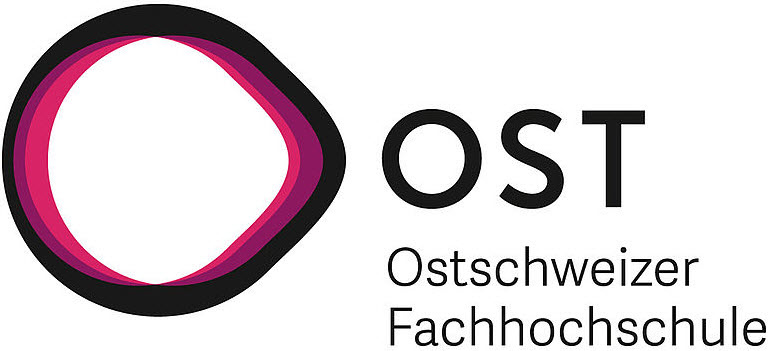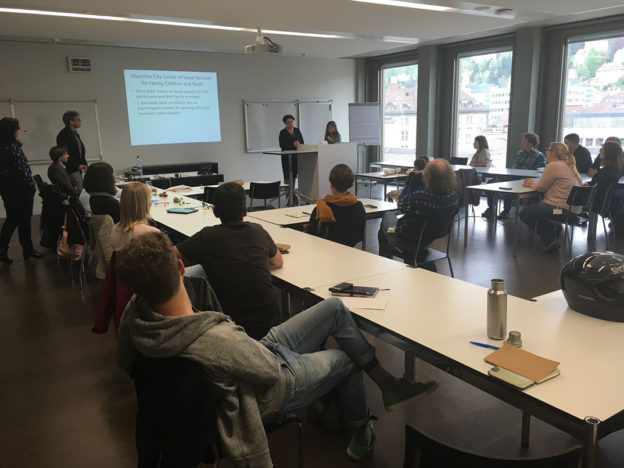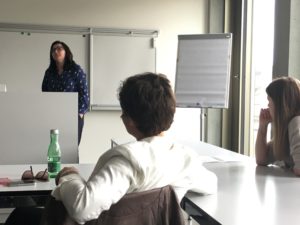A group of students, lecturers and social work professionals from the Ukraine visited the University of Applied Sciences St.Gallen in the past week. In the context of their visit, Prof. Dr. Tetiana Syla, lecturer at the National University of Technology in Chernihiv, gave a guest speech on the current challenges of Social Work in the Ukraine.
Silence filled the room, as Tetiana Syla described and visualized the Ukrainian multi-level conflict in 2014. She emphasized that the government and military have meanwhile had success in localizing the conflict. Still, many decisions were and are enforced against the will of civilians. In her perspective, a situation that does «not resemble the meaning behind the Ukrainian National State Emblem».
Since 2014, ex-combatants (veterans of the Anti-Terrorist Operation) have formed a new client group for social organisations in the Ukraine. A «big challenge» as Tetiana Syla states: «in 2017, over 170.000 men participated in anti-terrorist operations. Many volunteered to go and defend their land, others however, were mobilized against their will. They were not trained to fight.» Their motivation to join the military was either driven by money or by social benefits from the government, a situation addressing a challenging socioeconomic situation. Up to 20% of ex-combatants experience posttraumatic stress. In Tetiana Syla’s point of view, the entire Ukrainian society is experiencing posttraumatic stress, not solely the ex-combatants: «nobody expected Maidan would lead to this…the whole country in posttraumatic stress.»
A large proportion of the Ukrainian society has little trust in social work as well as psychologists. However, Tetiana Syla sees small tendencies in improving this situation. It was highly doubted and questioned that a good strategy could be established within this short period of time, but Tetiana Syla is very proud of what Social Work in the Ukraine has achieved with limited resources in the past four years. Along with the establishment of special centres, new professionals have been specifically trained for the work and cooperation with ex-combatants and their families. In addition to offering psychosocial support for ex-combatants and their family members, social work in the Ukraine is trying to change the image of ex-combatants within the society. Their goal is to integrate soldiers into the community.
An improvement in the professional level of social workers, changes in the Ukrainian legislation as well as structural and organizational improvements in the specialized centres are among the prioritized goals of today’s Social Work in the Ukraine.
text and photos: Vanessa Gächter



